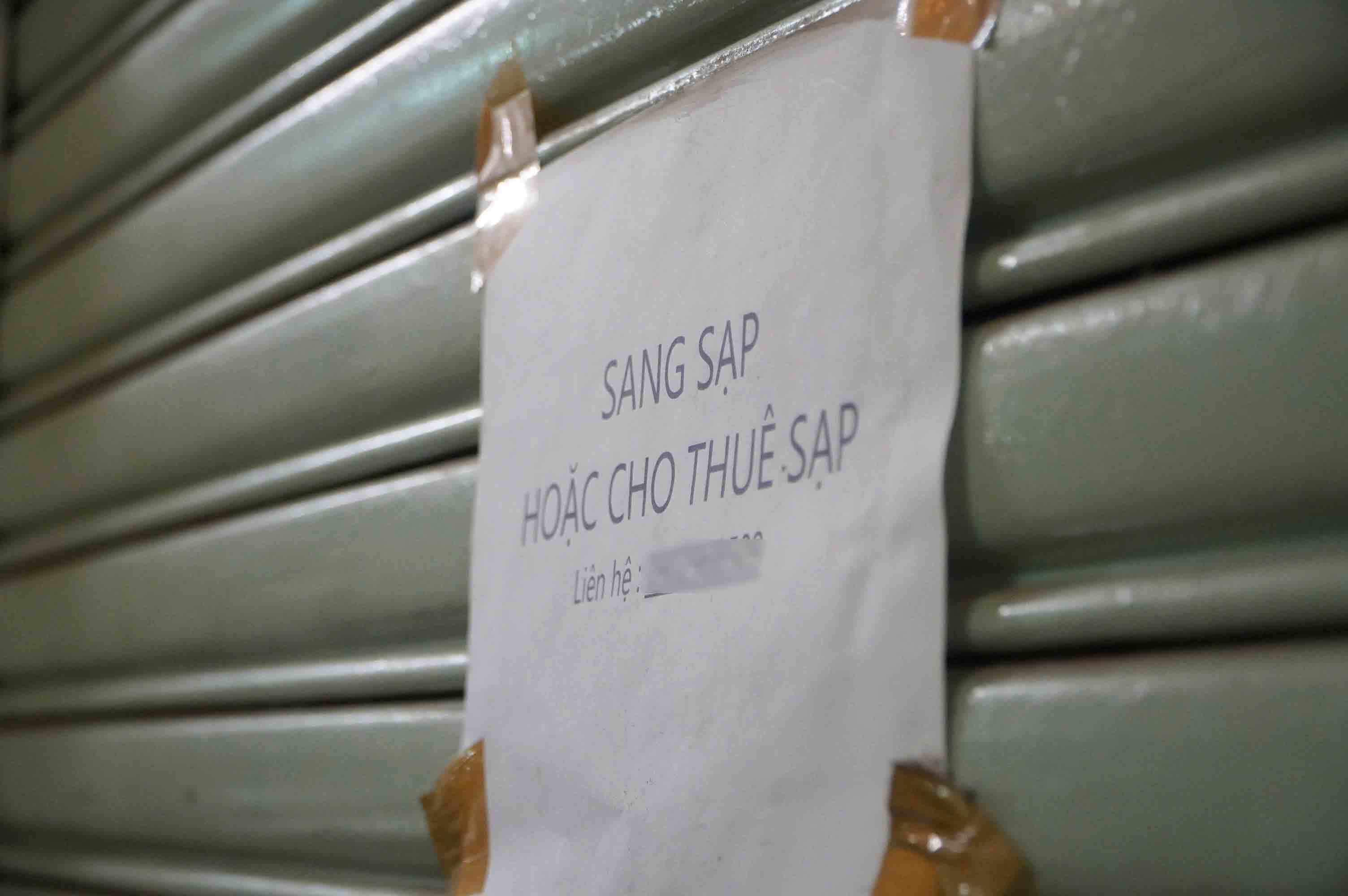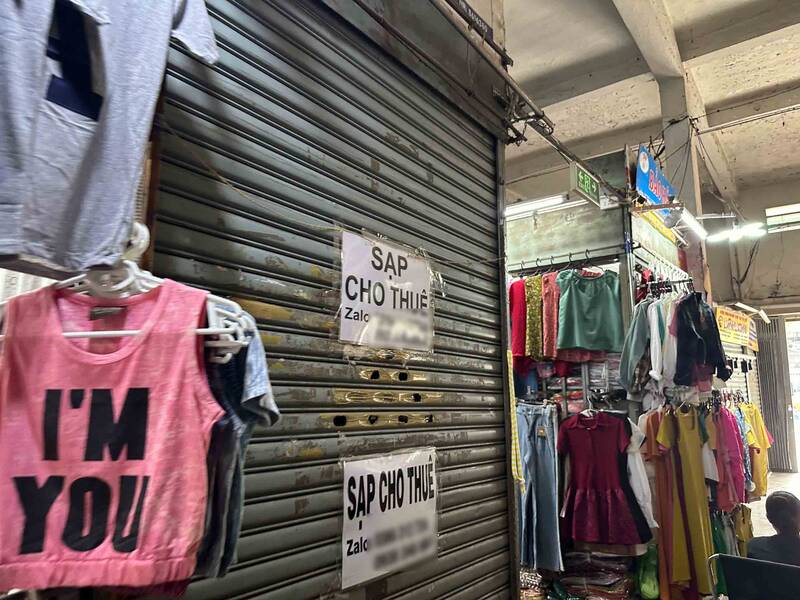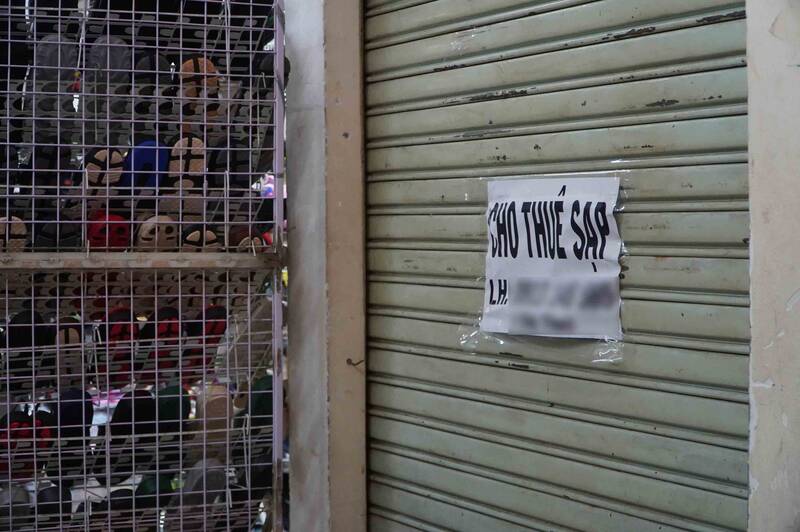Unfinished business
At Hanh Thong Tay market, one of the famous wholesale markets in Ho Chi Minh City, there are now no customers or sellers. Ms. Thuy Hoa - a long-time business owner at Hanh Thong Tay market said: "In the past, my shop had to have 2-3 employees working to serve customers, now there is only one person but sometimes all day. Now, people like to sit at home and choose goods online. Going to the market, wearing, trying things that take time but are frustrating, not many people like them anymore".
It is not difficult to see signs for rent and transfer at Binh Tay market, Tan Binh market, An Dong market... at kiosks. Some traders said that this situation has been going on for a long time, due to sluggish trading.


Ms. Nguyen Phuong - a trader at An Dong market shared: "The market is like my second home, I have been in business for many years. However, at my stall, I had to reduce nearly 60-70% compared to before the COVID-19 pandemic. Sometimes I feel sad when I see the market empty.
In addition, many traders in large markets said that the cost of renting premises can be up to 20-30 million VND/month. With the decline in the number of customers, many people had to move their stores and find other business directions.
Pressure from e-commerce
According to Mr. Nguyen Nguyen Phuong - Deputy Director of the Department of Industry and Trade of Ho Chi Minh City, traders at traditional markets are facing many challenges due to the pressure from e-commerce and increased costs. Although the number of customers is stable, even increasing during the holidays, the revenue of many industries has decreased significantly.
Typically, while food items, fresh food, beverages, flowers... still maintain a stable number of customers, many other industries are in a state of stagnation, with traders temporarily suspending business. For example, the construction materials, machinery accessories, and household appliances industry recorded a decrease in the number of customers by 20-40%; the grocery, clothing, and footwear industry decreased by 50-70%. The textile industry alone suffered a big shock when it decreased by 60-90% of the number of customers compared to before 2019.

Explaining this decline, the Department of Industry and Trade of Ho Chi Minh City pointed out a number of reasons such as consumers preferring ready-made garments, along with fierce competition from e-commerce (codes, prices, promotions, flexible delivery, etc.). Many wholesale customers have also switched to ordering by phone, causing some traders to temporarily stop doing business at the market, move home to reduce costs, use the market as a warehouse or keep old customers.
The Ho Chi Minh City Department of Industry and Trade has implemented many groups of solutions in line with market management practices, contributing to improving the effectiveness of state management and supporting business activities at the market. The People's Committee of Thu Duc City and districts also proactively monitor and promptly direct the organization and management of local markets; actively propagate new regulations to improve the quality of market activities. The recommendations and arising difficulties were basically handled in accordance with regulations.
In addition, the market management organization has coordinated with departments, branches and enterprises to promote and train traders, and at the same time implemented solutions to upgrade facilities, contributing to attracting visitors back to the market.











